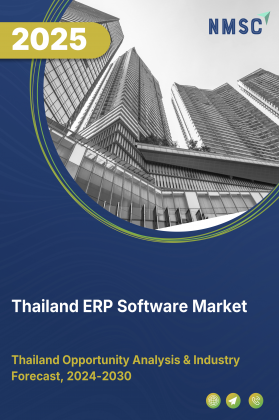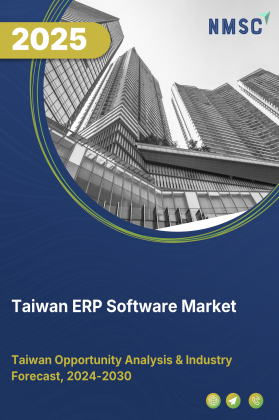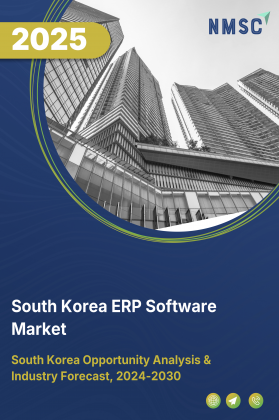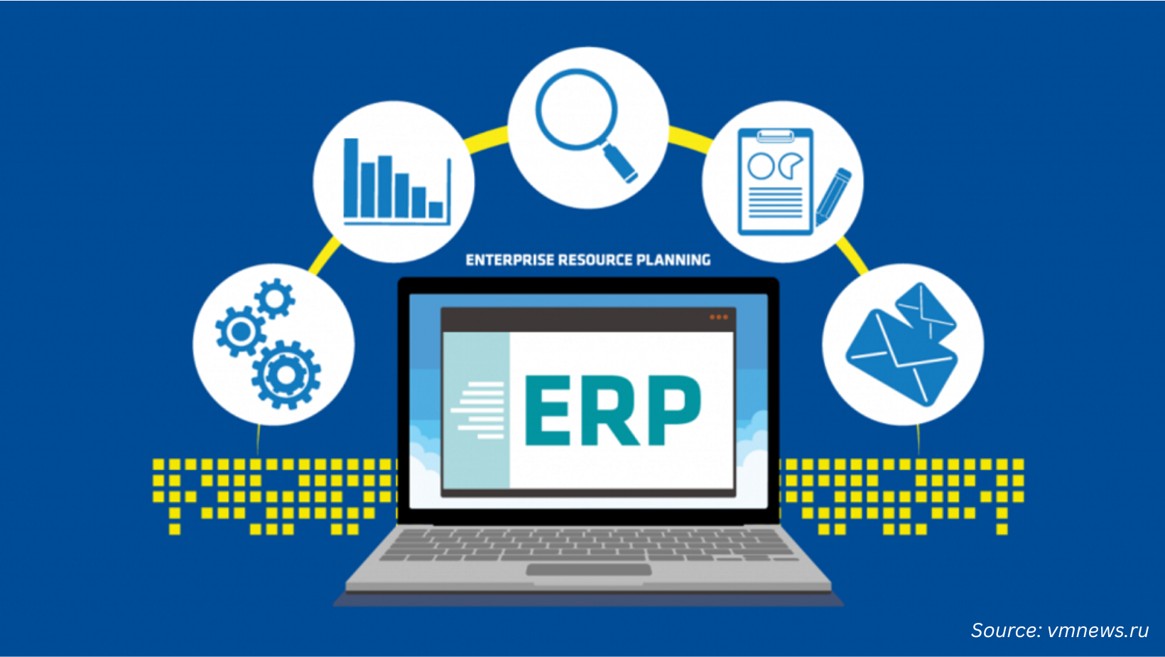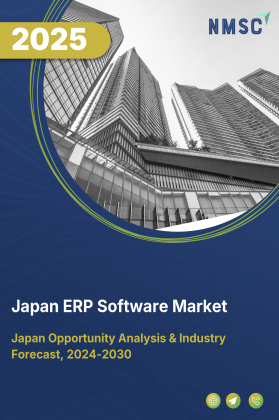
Japan ERP Software Market by Component (Software, and Services), Deployment (On-Premise, Cloud, and Hybrid), Business Function (Enterprise Asset Management, Financial Management, Human Capital Management, and Others), Application (Manufacturing, BFSI, Healthcare, Retail & Distribution, Government, IT & Telecom, and Others), and End Users (Small & Medium Enterprises, and Large Enterprises) – Trends and Forecast, 2025–2030.
Industry: ICT & Media | Publish Date: 17-Oct-2025 | No of Pages: N/A | No. of Tables: N/A | No. of Figures: N/A | Format: PDF | Report Code : IC3613
Industry Outlook
The Japan ERP Software Market size was valued at USD 5.06 billion in 2024 and is projected to grow to USD 6.32 billion by 2025. Additionally, the industry is expected to continue its growth trajectory, reaching USD 14.15 billion by 2030, with a CAGR of 17.49% from 2025 to 2030.
The market is experiencing robust growth, supported by key vendor activity and government-backed digital transformation efforts. Leading players such as SAP, Oracle, and LG CNS are introducing advanced, industry-specific ERP solutions, while strategic partnerships like Sazae and Odoo expand accessibility across the region. Government initiatives promoting automation and offering financial incentives further accelerate ERP adoption, especially among SMEs. However, high implementation costs, workforce shortages, and resistance to change in traditional sectors remain significant barriers. Meanwhile, IoT integration is emerging as a major opportunity, enhancing ERP capabilities with real-time data insights and operational efficiency, particularly in manufacturing and logistics.
Presence of Key ERP Vendors and Product Launches Drives the Japan ERP Software Market Expansion
Japan holds the second-largest market share in the region, supported by the strong presence of leading ERP vendors and recent innovative product launches. For example, LG CNS introduced its ‘PerfecTwin ERP Edition’ in October 2024 to boost manufacturing efficiency. Major global players like SAP, Oracle, and Fujitsu are actively expanding their operations, offering tailored ERP solutions to meet Japan’s diverse market needs. Additionally, Sazae partnered with Odoo in August 2024 to provide scalable and flexible ERP platforms across Japan, Australia, and Taiwan. These efforts foster competitive innovation, meeting evolving business demands and accelerating ERP adoption across multiple sectors.
Government Initiatives and Automation Efforts Accelerate the Japan ERP Software Market Growth
Japan’s strategic emphasis on automating business processes is a key driver of ERP software market adoption. The government supports digital transformation through programs such as the "Vision for a Digital Garden City Nation," allocating around USD 660 million in grants to local governments to promote digitalization. Subsidies for SMEs adopting cloud and IT tools, along with tax incentives for digital investments, further encourage ERP implementation. These initiatives help businesses streamline operations, improve efficiency, and stay competitive amid rapid technological evolution.
High Costs Restraining ERP Market Adoption
ERP adoption in Japan is limited by a shortage of skilled IT professionals, largely due to the country’s aging population. The high initial costs and complexity of ERP deployment deter many smaller companies from investing in these systems. Moreover, resistance to change in traditional industries, which rely on legacy software, slows the modernization of business processes. These factors restrict the accessibility and pace of ERP integration across the market.
Iot Integration Elevates Opportunities in the ERP Systems Growth
The integration of Internet of Things (IoT) technology with ERP systems is rapidly becoming a major driver of growth, providing real-time data visibility and enhanced operational control. Iot-enabled ERP platforms allow businesses to track inventory, monitor equipment performance, and predict maintenance needs, significantly improving efficiency in sectors like manufacturing and logistics. In March 2025, Epicor Software Corporation introduced Epicor Kinetic 2025, a next-generation ERP solution featuring advanced IoT integration for real-time monitoring and predictive maintenance in manufacturing environments. This innovation demonstrates the transformative impact of IoT on ERP functionality and highlights the increasing demand for smart, connected enterprise solutions.
Competitive Landscape
The market players operating in the Japan ERP software industry include SAP SE, Microsoft Corporation, Oracle NetSuite, Rockwell Automation, Workday, Inc., Ramco Systems, Yonyou Company Limited, Odoo, Marketech International Corporation, Infor, IFS, QAD Inc., Pixel Tech, ORIX Corporation, Tricor Group and others.
Japan ERP Software Market Key Segments
By Component
-
Software
-
Service
By Deployment
-
On Premise
-
Cloud
-
Hybrid
By Business Function
-
Enterprise Asset Management (EAM)
-
Record Assets (Asset Mgmt)
-
Analytics & BI
-
Disposal of Assets
-
Others
-
-
Financial Management System
-
Core Financials
-
Corporate Performance Mgmt (CPM)
-
Financial Consolidation
-
Others
-
-
Human Capital Management (HCM)
-
Talent Management
-
Administrative HR
-
Workforce Management
-
Others
-
-
Manufacturing and Operations
-
Production Planning and Scheduling Products
-
Production Ops and Control Products
-
Manufacturing Information Mgmt Products
-
Others
-
-
Supply Chain Management (SCM)
-
Inventory management
-
Warehouse management
-
Transportation management
-
Procurement
-
Contract Management
-
-
Others
By Application
-
Manufacturing
-
BFSI
-
Healthcare
-
Retail & Distribution
-
Government
-
IT & Telecom
-
Construction
-
Aerospace Defense
-
Other Industries
By End Users
-
Small and Medium-Sized Enterprise
-
Large Enterprise
Key Players
-
Microsoft Corporation
-
Oracle NetSuite
-
Rockwell Automation
-
Ramco Systems
-
Yonyou Company Limited
-
oddo
-
Marketech International Corporation
-
Infor
-
IFS
-
QAD Inc.
-
Pixel Tech
-
ORIX Corporation
-
Tricor Group
Report Scope and Segmentation
|
Parameters |
Details |
|
Market Size in 2025 |
USD 6.32 billion |
|
Revenue Forecast in 2030 |
USD 14.15 billion |
|
Growth Rate |
CAGR of 17.49% from 2025 to 2030 |
|
Analysis Period |
2024–2030 |
|
Base Year Considered |
2024 |
|
Forecast Period |
2025–2030 |
|
Market Size Estimation |
Billion (USD) |
|
Growth Factors |
|
|
Companies Profiled |
15 |
|
Market Share |
Available for 10 companies |
|
Customization Scope |
Free customization (equivalent up to 80 working hours of analysts) after purchase. Addition or alteration to country, regional, and segment scope. |
|
Pricing and Purchase Options |
Avail customized purchase options to meet your exact research needs. |

















 Speak to Our Analyst
Speak to Our Analyst



